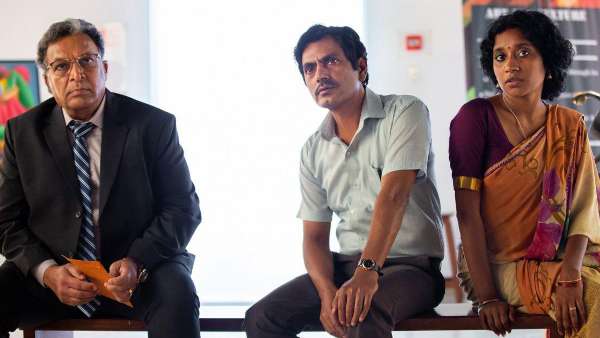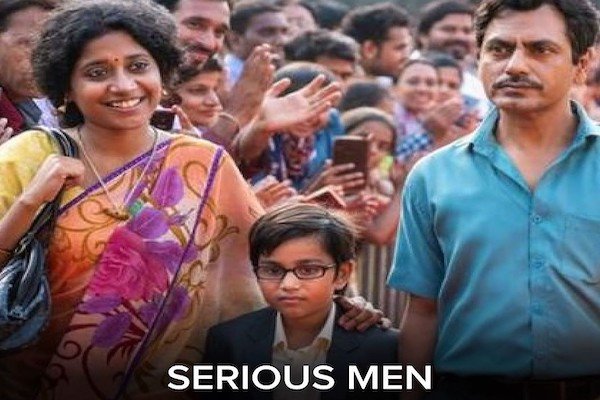Stephan J Gould had quoted-
“I am, somehow, less interested in the weight and convolutions of Einstein’s brain than in the near certainty that people of equal talent have lived and died in cotton fields and sweatshops.”
Barring certain exceptions, mainstream Indian cinema has largely remained uncomfortable with the idea of caste. For decades, it spun romantic stories about rich girls and poor boys without mentioning caste. There have been some attempts in the 80s in the ‘art’ movie genre and in the last 10-15 years with movies like LSD, Aarakshan, Hazaron Khwaishein Aisi, Dirty Picture to name a few that tried to portray caste though through a Savarna lens.
Last few years due to the emergence of a new brand of directors, and streaming platforms we are seeing a spate of movies that are not shying away from talking about caste. But most fail to understand and portray caste in a nuanced manner.
Most often these movies try to depict the topic of caste as some external factor told in class narrative of rich vs poor. In the last decade films like Masaan, Manjhi the mountain man, Article 15, Paatal Lok, Palasa 1978, C/O Kacherapalem, Fandry, Sairat, Rangasthalam, Madras, Kaala, kabali, Pariyerum Perumal and Asuran have brought forth the issues of caste and class conflicts in varying levels on screen.
Also Read: Decoding the Politics of “Order”: Hathras Gangrape and Caste-Crimes in Uttar Pradesh
The latest in this series is Serious Men produced and aired on Netflix based on the book authored by journalist and writer Manu Joseph. The movie stars Nawazuddin Siddiqi in lead and is directed by acclaimed director Sudhir Mishra.
The film deals with a Tamilian, Ayyan Mani who grew up in a Mumbai Chawl. The character of Mani is played by Nawazuddin Siddiqi who works as a personal assistant to a brahmin scientist Arvind Acharya played by Nasser at the National Institute of Fundamental Research in Mumbai. Ayyan is depicted as a 1st generation educated who dreams of making his kid Adi a genius by trying to emulate the mannerisms and vocabulary of serious men at the institute where he works. Adi is made to rote learn many things selectively from his father that helps him to be branded as a child prodigy.
The movie appears to be inspired by the “child Prodigy” Tathagat Avatar Tulsi who was in news in the 2000s. He was also built up as a genius by his father, who claimed his genius arose from how he was conceived. Tulsi got his Masters degree at the age of 12 from Patna University. Tulsi was sent with other students to Germany to meet Nobel Laureates where he was accused of being a fake genius who threw around scientific jargon to look smart. Tulsi disappeared from the media circus. Later it was found that he was doing PhD from IISc and is now a faculty at IIT.
The movie shows the media and society’s obsession with child prodigies. It reflects Indians’ love for “merit” and who is more meritorious than a genius? Additionally, it also washes away the need to address the structural inequalities that prevent many from even living a decent life.
The movie revolves around Mani and his son and their little secret. Mani’s confidence that he can trump the meritorious serious men in their game is soon overshadowed by fears when he finds out that his son, Adi is crumbling under the burden of his father’s secret and the fear that his fraud might be exposed. Adi finds it increasingly difficult in reproducing what has been taught to him and is gripped by the insecurity of failure. At the same time scientist, Acharya too is caught by Ayyan for faking data on alien microorganisms and its applications.

The film culminates with Ayyan and family leaving Mumbai and going back to the village where Adi is a mediocre student but he is a happy child.
The film adaptation is different from the book. In the book, Ayyan makes a compromise for his kid with Acharya’s corruption scandal to clear the NIFR test wherein a movie he has made to relocate to his village.
Caste- the elephant in the room
Serious Men movie tries to dabble Satire and seriousness on Caste, Class, Corruption as entertainment and fails at it miserably. Manu Joseph is known for his cynical writing and dark humour but when you talk about the underdog a little sensitivity is the least to expect from a writer. This is where the writer and the movie’s lack of social reality of caste is most jarring.
Though the movie uses a Dalit protagonist it ends up showing him as a schemer who can go to any length to match up to his upper castes superiors. The movie also uses Ambedkarite politicians as props who come to use Adi’s fame to get building projects. Lower castes are depicted as ignorant in bringing up the child. The only way that they can get to the top is by fraud. Words like Merit, reservation, Ambedkar, and “Dalit women victim card” are thrown around like seasoning without any proper engagement to an audience who is already misinformed of these issues.
An upper-caste Arvind Acharya can redeem himself despite having an affair and committing fraud in the form of research grants, but a lower caste does not have any redemption and has to suffer the consequences.
The book was written in 2010, and a lot has changed in India since then. Caste atrocities are not stories of Indian hinterland or art movie projects. Rohit Vemula’s suicide shook the nation. Along with that the rise of young articulate Dalit leaders has brought the issue of caste to the mainstream. Despite this 10 year gap, the author did not bother to update or deal with the topic with some nuance and sensitivity. One is reminded of Prof. Ashish Nandy’s comment at Jaipur Lit Fest in 2013, where he commented that “ Most of the corrupt are from SC/ST and OBCs. He received a lot of criticism for it. Such sweeping generalisations do more harm to already marginalised communities.
The movie propagates the upper-class narrative. The general problem of education is shown as a Dalit problem. Instead of addressing the larger problems of the education system where marks are measured as merit and general problems of reproducing knowledge through recitation, the film shows only a section of society in bad light who are trying to climb the ladder of progress.
If we compare the boy Adi character in “serious men” with that of the recently released math genius movie “Shakuntala Devi” there is not much difference in the methods of learning. But an upper-caste Shakuntala Devi’s performance of mental math(which has no relation to actual maths) stands tall and successful whereas Adi with the same method of learning is shown as a failure.
The dialogue- “I can’t deal with primitive minds” is actually more suitable for writers like Manu Joseph and makers of the film who despite their education and access to it are totally ignorant of the social reality of the country.
The writer is a political commentator based in Bangalore.




[…] Movie Review: Benovelent Casteism of `Serious Men’ […]